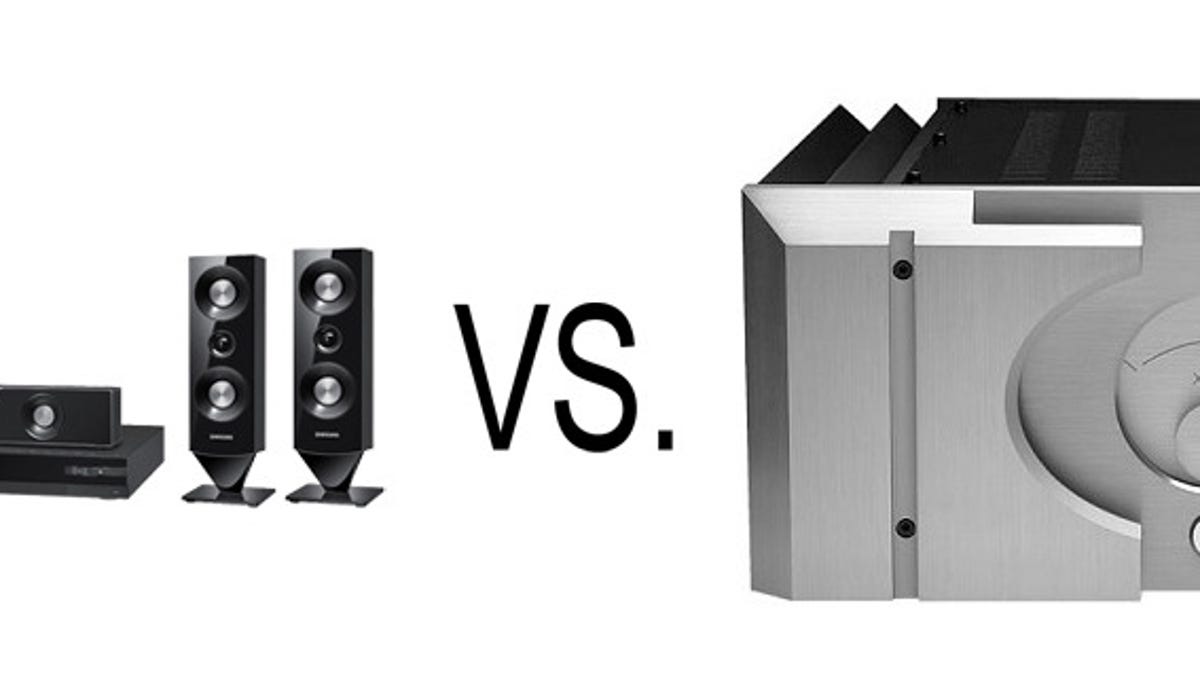Are all 100-watt-per-channel amplifiers equally powerful?
Can an 8.4-pound 1,000-watt home theater in a box really be more powerful than a $16,000 100-watt stereo amplifier? How many watts do you need?

In a perfect world, all 100-watt-per-channel amplifiers would be equally powerful. If we were talking about cars instead of amplifiers, you might suppose all cars with 300 horsepower are equally fast. But the weight of the car, gearing, and suspension tuning all play their parts, so performance expectations have to be based on more than just a single specification or number.
Before we go any further, I'd like to point out that the power spec's prime relevance lies in determining how loud a given set of speakers can play. Assuming the speakers can handle power, feeding them more power will produce louder sound levels. Sound quality is another matter, and isn't always associated with power, so the more powerful amp isn't necessarily the better-sounding amp. A few months ago I wrote a rave review of a 3.5-watt amplifier that sounded wonderful with my Zu Essence tower speakers. So just a couple of watts can sound amazing, and play louder than you'd think. Amplifier-speaker matching is more than a numbers game; knowledge of what works with what is a valuable commodity, so if you're lucky enough to have access to a top-notch hi-fi dealer or an experienced audiophile buddy, don't be afraid to ask for advice.
Then again, you don't need to be an expert to see that a "1,000-watt" home theater in a box system, like the excellent Samsung HT-C6500, is nowhere as powerful as a Pass Labs XA100.5 100-watt amplifier. The HT-C6500's power amplifiers are rated to deliver 165 watts to each of the four satellite speakers, 170 for the center channel speaker, and 170 watts to the subwoofer. Add it up and it comes to 1,000 watts.
But what about that power rating? I'm sure Samsung's engineers are top-notch pros, but getting 1,000 watts out of an 8.4-pound Blu-ray player-amplifier stretches credibility to the max. It's a sweet-sounding system that sells for around $649, and for that kind of money it's an excellent buy.
The Pass Labs XA100.5 amplifier dishes out 100 watts, weighs 110 pounds, and you need two for stereo. So is it feasible to imagine that the little Samsung is actually more powerful than 220 pounds of Pass Labs amplifiers? The Pass 100-watt rating refers to an 8 ohm speaker load; 4 ohm speakers get 200 watts. Clearly, the power ratings of the Samsung and Pass aren't based on the same types of measurements.
And since consumers don't have access to information about measurements, my best advice is to disregard power ratings altogether. If high-volume capability is a big priority, buy a powerful, heavyweight amp and speakers that work well together.
Sound quality can't be measured or converted into a number, but it's something your ears recognize. Trust me on this one: the Pass amplifiers mated with a great set of speakers sound a lot better than the Samsung HT-C6500. Priced at $16,900 a pair, it absolutely should sound better, even though it comes up 800 watts shy of the Samsung's 1,000 watts.

